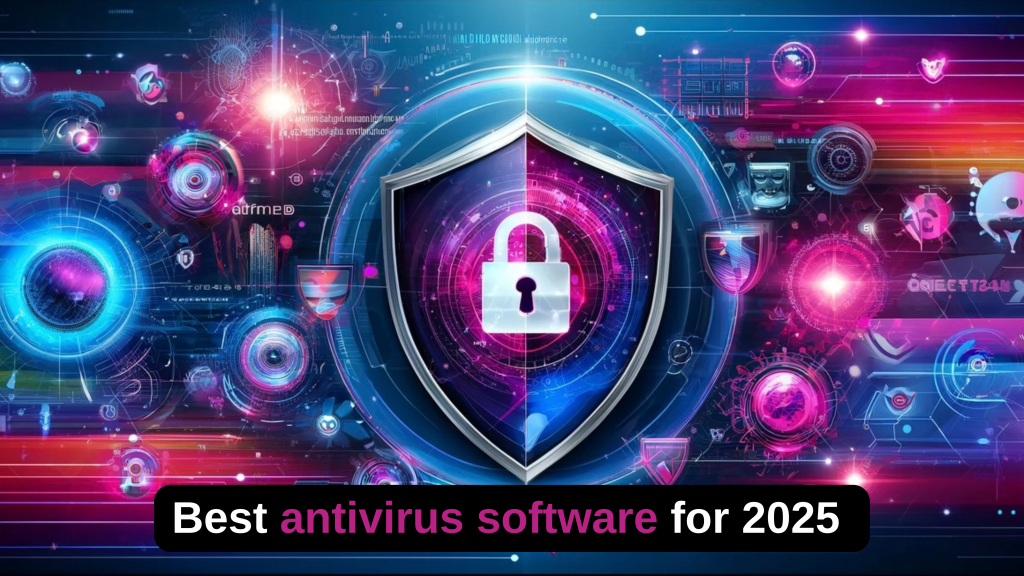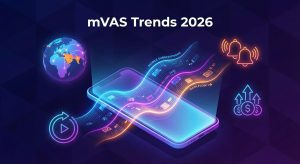In 2025, our lives are more digital than ever – and so are the threats lurking online. Going without antivirus protection is like leaving your front door wide open. Cybercriminals are constantly seeking unprotected devices to infect and exploit. Every day, over 450,000 new malicious programs and unwanted apps are unleashed on the internet. If you think a virus or hacker won’t target you, think again – ordinary people fall victim every single day, often with devastating consequences. This article explores why antivirus software is absolutely essential for everyone in 2025, highlights the real-world dangers of going unprotected, and compares leading antivirus solutions that can keep you safe. By the end, you’ll understand the urgency of securing your digital life before it’s too late.
The Real Dangers of Going Without Antivirus
Without up-to-date antivirus protection, you’re extremely vulnerable online. Here are some of the real-world threats that can strike when your guard is down:
- Malware Infections: Viruses, worms, and spyware can silently invade your PC or phone. They might corrupt or delete your files, spy on everything you do, or turn your device into a zombie in a botnet. Over 1.7 million malware attacks happen per day – about 19 attacks every second globally. With no antivirus, you likely wouldn’t even know if malicious code is running on your system. Modern security software is your first line of defense, constantly scanning and quarantining threats before they spread.
- Ransomware Attacks: This particularly nasty malware locks all your files behind encryption, then demands you pay a ransom to get them back. Ransomware has exploded in recent years – the average cost of a ransomware incident (for businesses) reached $1.85 million. Home users aren’t immune: precious family photos, schoolwork, or personal documents could be held hostage. No antivirus means ransomware can quietly encrypt your data and display a scary message demanding money. Paying doesn’t guarantee return of your files, either. Antivirus suites with behavioral analysis can detect the suspicious encryption activity and stop ransomware before it completes its dirty work.
- Identity Theft: If malware or a clever phish steals your personal information (social security number, ID details, passwords), criminals can impersonate you. They might take out loans, open credit cards, or even hijack your social media and email. Cases of identity theft are at an all-time high – there’s an identity theft incident every 22 seconds on average. Once thieves have your data, the nightmare begins. Recovering your identity can take months or years, and the damage to your credit and reputation can be life-altering. A good antivirus helps by blocking spyware/keyloggers that steal data and by warning you of phishing websites that try to trick you into giving up information.
- Financial Fraud: Banking trojans and phishing scams aim directly at your wallet. Without protection, you might click a fake bank email and unknowingly install malware that steals your banking passwords. Or a keylogger might capture every credit card number you enter online. The result? Empty bank accounts and unauthorized charges. In 2024, Americans lost $47 billion to identity fraud and scams. One cybersecurity investigation even uncovered millions of dollars in stolen cryptocurrency, as cybercriminals laundered funds from victims who had no security measures in place. Antivirus software with web protection can block phishing sites and dangerous downloads, alerting you before you enter your credentials on a bogus page. Many suites also include safe browsing modes or anti-fraud extensions to keep your online shopping and banking secure.
In 2025, our lives are more digital than ever – and so are the threats lurking online. Going without antivirus protection is like leaving your front door wide open. Cybercriminals are constantly seeking unprotected devices to infect and exploit. Every day, over 450,000 new malicious programs and unwanted apps are unleashed on the internet. If you think a virus or hacker won’t target you, think again – ordinary people fall victim every single day, often with devastating consequences. This article explores why antivirus software is absolutely essential for everyone in 2025, highlights the real-world dangers of going unprotected, and compares leading antivirus solutions that can keep you safe. By the end, you’ll understand the urgency of securing your digital life before it’s too late.
The Real Dangers of Going Without Antivirus
Without up-to-date antivirus protection, you’re extremely vulnerable online. Here are some of the real-world threats that can strike when your guard is down:
- Malware Infections: Viruses, worms, and spyware can silently invade your PC or phone. They might corrupt or delete your files, spy on everything you do, or turn your device into a zombie in a botnet. Over 1.7 million malware attacks happen per day – about 19 attacks every second globally. With no antivirus, you likely wouldn’t even know if malicious code is running on your system. Modern security software is your first line of defense, constantly scanning and quarantining threats before they spread.
- Ransomware Attacks: This particularly nasty malware locks all your files behind encryption, then demands you pay a ransom to get them back. Ransomware has exploded in recent years – the average cost of a ransomware incident (for businesses) reached $1.85 million. Home users aren’t immune: precious family photos, schoolwork, or personal documents could be held hostage. No antivirus means ransomware can quietly encrypt your data and display a scary message demanding money. Paying doesn’t guarantee return of your files, either. Antivirus suites with behavioral analysis can detect the suspicious encryption activity and stop ransomware before it completes its dirty work.
- Identity Theft: If malware or a clever phish steals your personal information (social security number, ID details, passwords), criminals can impersonate you. They might take out loans, open credit cards, or even hijack your social media and email. Cases of identity theft are at an all-time high – there’s an identity theft incident every 22 seconds on average. Once thieves have your data, the nightmare begins. Recovering your identity can take months or years, and the damage to your credit and reputation can be life-altering. A good antivirus helps by blocking spyware/keyloggers that steal data and by warning you of phishing websites that try to trick you into giving up information.
- Financial Fraud: Banking trojans and phishing scams aim directly at your wallet. Without protection, you might click a fake bank email and unknowingly install malware that steals your banking passwords. Or a keylogger might capture every credit card number you enter online. The result? Empty bank accounts and unauthorized charges. In 2024, Americans lost $47 billion to identity fraud and scams. One cybersecurity investigation even uncovered millions of dollars in stolen cryptocurrency, as cybercriminals laundered funds from victims who had no security measures in place. Antivirus software with web protection can block phishing sites and dangerous downloads, alerting you before you enter your credentials on a bogus page. Many suites also include safe browsing modes or anti-fraud extensions to keep your online shopping and banking secure.
These dangers are not just hypothetical
Millions are affected each year. The U.S. Federal Trade Commission received about 5.7 million fraud and identity theft reports in one year, up from 4.7 million the year prior. And cybercrime losses doubled to over $10 billion in a year. It’s clear that an unprotected device is an easy target. As one security expert bluntly warned: “Without security software, your device is vulnerable to malware, phishing attacks, and data theft. Cybercriminals exploit unprotected systems to steal passwords and financial data, and can even remotely take control of your device.” In short, going online without antivirus is inviting criminals into your life.
Why Antivirus Protection Is Essential in 2025
Years ago, only tech geeks or businesses talked about cybersecurity. In 2025, antivirus protection is essential for everyone, not just the tech-savvy. Cyber threats have proliferated and evolved – and they don’t discriminate. Whether you’re a student, a working professional, or a senior citizen, if you use the internet, you are a target. In fact, the vast majority of people recognize the risk: about 75–85% of U.S. citizens use some form of antivirus software.
If you’re among the holdouts, you’re putting yourself in a small (and very risky) minority. One reason some folks hesitate is the misconception that built-in protections are enough. It’s true that modern operating systems include basic security – for example, Windows comes with Microsoft’s Defender antivirus, and macOS has XProtect malware scanning. However, these default tools have significant limitations. Microsoft Defender, for instance, while much improved, often scores lower in independent malware detection tests than top third-party antiviruses. It also lacks many security features that premium suites offer: things like a VPN service, password manager, identity theft monitoring, or robust web protection.
Relying solely on built-in protection is a bit like relying on a single lock on your door in a high-crime area – it’s better than nothing, but far from truly secure. As one review put it, “cyberthreats are constantly evolving, and relying on luck isn’t a security strategy. Without antivirus software, you risk financial loss, stolen personal data, and identity fraud. Investing in strong protection measures today can save you from serious consequences tomorrow.”
It’s also important to recognize that threats span all your devices. Windows PCs are still the #1 target for most malware and ransomware, but macOS and Android threats are on the rise too. Even iPhones, while relatively safer from malware, can fall prey to phishing and web-based attacks. Quality antivirus brands now offer solutions across all major platforms. They ensure your family’s phones, tablets, and computers are all shielded under one umbrella. In 2025, when we manage our finances, personal communications, and work from multiple devices, comprehensive protection everywhere is a must.
Layers of Protection from Modern Antivirus Software
Antivirus software today is more than just a virus scanner. It provides multiple layers of defense to counter the myriad threats out there. A good security suite in 2025 typically includes:
- Real-Time Threat Detection & Removal: Antivirus engines continuously scan files and monitor system behavior. They use extensive malware databases plus AI-based heuristics to catch new variants. When a threat is identified, it’s immediately quarantined or removed before it can cause harm. This real-time shield is crucial – it means even if you accidentally download an infected attachment or plug in an infected USB, the antivirus will block the malware instantly.
- Behavioral Analysis & Ransomware Protection: Modern antiviruses don’t rely only on known virus signatures. They watch for suspicious actions like a program suddenly trying to encrypt a bunch of your files (which is what ransomware does). If such behavior is detected, the software can halt the process and stop the attack in its tracks. Many suites have dedicated anti-ransomware modules that guard specific folders or file types, adding an extra lock on your personal data.
- Firewall and Network Security: A firewall monitors incoming and outgoing connections, acting as a barrier against unauthorized access. While your OS includes a basic firewall, antivirus suites often enhance this with smarter intrusion detection. They can stealth your PC on public networks, block exploit attacks, and prevent suspicious applications from connecting to the internet. This is vital to fend off hackers who try to remotely penetrate your system.
- Web and Phishing Protection: A large portion of attacks in 2025 occur via the web – fake websites, malicious ads, dangerous downloads, and phishing emails. Antivirus software usually integrates with your web browser to block known malicious sites and warn against phishing pages. This helps prevent identity theft and fraud at one of the most common entry points.
- Privacy Tools (VPNs, Password Managers, etc.): Many top antivirus suites now bundle in privacy-focused tools. A VPN (Virtual Private Network) encrypts your internet connection, which is invaluable on public Wi-Fi networks (coffee shops, airports) where attackers might snoop. Likewise, password manager integration is common – helping you generate and securely store strong passwords so you don’t reuse the same ones everywhere. Some suites also have dark web monitoring that will alert you if your personal info or passwords leak online.
- System Optimization and Cleanup: As a bonus, certain antiviruses also offer device tune-up utilities. For instance, they may include system cleanup tools to remove junk files and boost performance, and PC performance scan features. These aren’t directly security-related, but they help keep your device running smoothly. Given that malware can slow down or destabilize your system, keeping your machine optimized is a nice complementary benefit. Just be wary of overlapping tools – e.g., if Windows already does something natively, extra tune-up features may be of marginal benefit.
- Multi-Device and Family Protections: The best antivirus packages let you protect all your devices with one subscription. They also often include parental control features to help families. Parental controls can block inappropriate content, set time limits, and even track a child’s device location for safety. If you have kids using tablets or laptops, this feature is a great addition to keep them safe online.
All these layers work together to provide a rounded shield. No security is 100% foolproof, but with an up-to-date antivirus suite, you drastically reduce the odds that you’ll become yet another victim of cybercrime. It’s like having a team of security experts watching your back 24/7 – scanning for intruders, checking that the sites you visit are safe, keeping your connection private, and so on. In 2025, this kind of protection isn’t overkill; it’s just common sense.
Leading Antivirus Software in 2025: Comparison and Reviews
There are dozens of antivirus products on the market, but a handful of industry leaders consistently stand out for their protection capabilities and features. Below, we’ll compare some of the top antivirus software options for 2025 – including TotalAV, Norton 360, McAfee, Avast, Bitdefender, and others like Kaspersky and ESET. Each offers core antivirus functions but differs in extras, pricing, and device coverage. The following table provides a quick overview of key features:
Note: Starting prices above are introductory first-year offers. Renewal prices are usually higher (sometimes significantly). All listed products provide core antivirus and malware protection; features like VPN or password managers may only be included in certain tiers. Multi-device support indicates how many devices can be protected under one subscription.
As the comparison shows, all of these reputable antivirus solutions cover the basics like real-time malware scanning and often much more. They differ in additional capabilities: for example, TotalAV is known for its device optimization tools and ease of use, whereas Norton 360 is praised for its comprehensive suite of security and privacy features (from a full VPN to dark web monitoring). McAfee stands out by offering identity theft protection services and an option for unlimited devices on its higher-tier plans – a great value for a family with many gadgets. Avast (famous for its free antivirus) in the Premium version adds an advanced firewall and other protections, though notably it does not include a VPN or password manager out-of-the-box. Meanwhile, Bitdefender is often lauded as a powerhouse of features, combining almost every tool imaginable into one suite while maintaining excellent malware defense.
To help you decide, let’s take a closer look at each of these leading options and see what experts and users say about them:
TotalAV – User-Friendly Protection with Tune-Up Tools
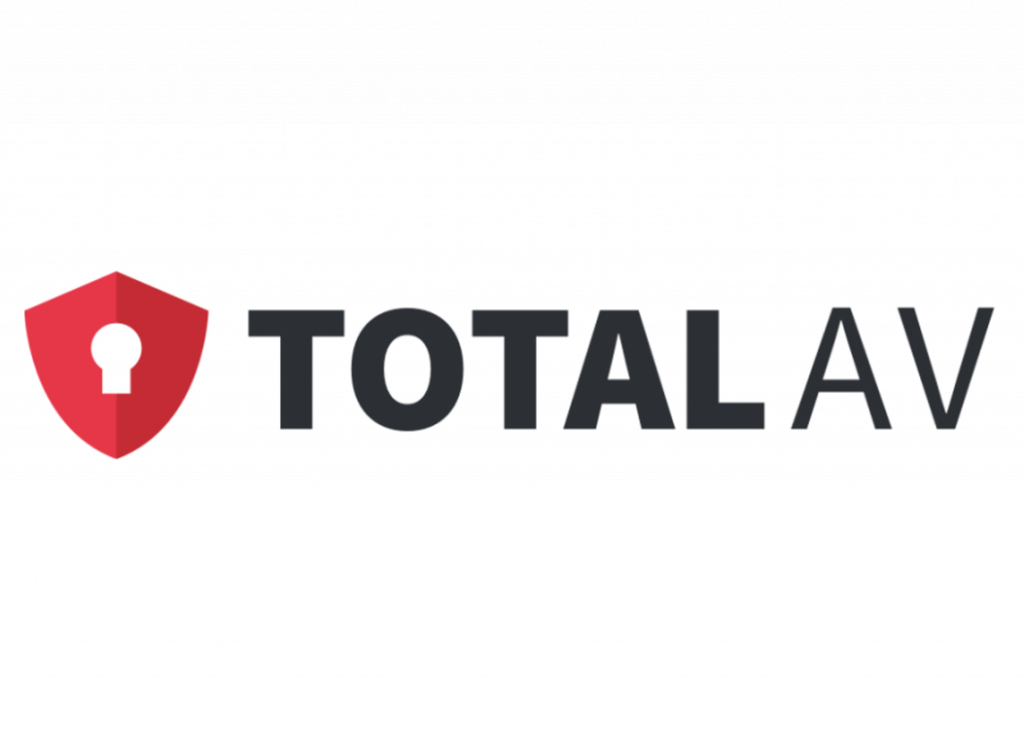
TotalAV is a relatively newer contender that has quickly gained popularity among everyday users. It provides all the core protections you’d expect – defending against viruses, trojans, spyware, and other malware in real time – and wraps it in an intuitive interface that even non-techies find easy to navigate. In fact, some reviewers noted that they liked the interface of TotalAV better compared to competitors like Norton.
TotalAV also puts a big emphasis on system optimization: it includes tools to clean up junk files, manage browser cookies, and generally speed up your device’s performance. This can be a nice perk if your computer has been feeling sluggish.
On the security front, TotalAV holds its own well. It offers dependable malware detection (using an engine that’s scored well in tests) and even has anti-phishing web protection and a built-in ad blocker.
However, there are a couple of drawbacks to note:
- TotalAV lacks its own firewall, meaning it relies on Windows or macOS’s built-in firewall to block network intrusions.
- It also doesn’t yet have advanced behavior-based ransomware detection on par with some rivals (no separate “ransomware shield” feature beyond basic malware detection).
The software does include a VPN for secure browsing, but only in higher-tier packages like Internet Security and Total Security. The company is known for very aggressive first-year pricing – as low as $29 for the first year – but be aware that renewals jump drastically (the $29 plan renews at ~$99/year). On the positive side, there is a free version of TotalAV available, which provides basic on-demand virus scanning for those who want to try it out.
Expert Opinion: TotalAV has garnered good reviews for its simplicity and value. In tests, it has achieved decent malware detection rates. Its additional features focus more on device optimization and system tune-ups, catering to users who want an all-in-one maintenance and security app. If you’re someone who wants a lightweight, easy-to-use antivirus that can also help clean up your system, TotalAV is a compelling choice – just keep an eye on those renewal costs and remember to supplement it with your OS firewall since TotalAV itself has no firewall module.
Norton 360 Deluxe – A Feature-Rich Suite and Industry Veteran
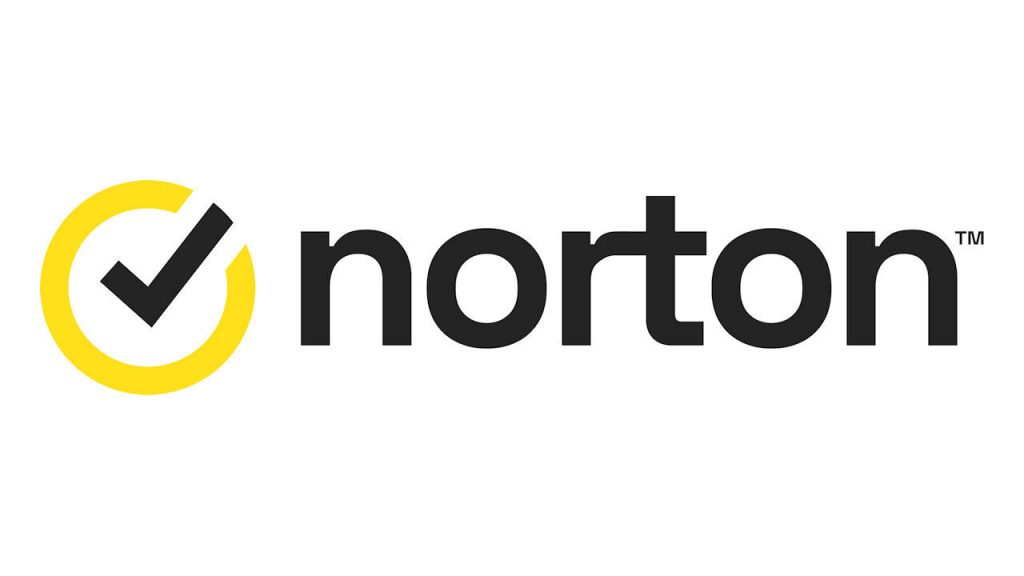
Norton is a name that’s practically synonymous with antivirus. In its current form as Norton 360 Deluxe, it offers one of the most comprehensive security suites available for home users.
Norton 360’s protection capabilities are top-notch – in recent tests, Norton detected 99.8% of real-time malware attacks (slightly outperforming McAfee’s 99.5%), and it did so with very little impact on system performance. It employs everything from signature-based detection to machine learning and heuristic analysis to stop threats, plus it adds a robust firewall and intrusion prevention system for network protection by default.
What really sets Norton apart are its extra features. It goes beyond antivirus to include a full suite of security and privacy tools. Notably, Norton 360 Deluxe comes with:
- An unlimited-use VPN for secure, private browsing.
- A password manager.
- 50 GB of cloud backup for your important files.
- Webcam protection to prevent spying.
- Dark web monitoring that will alert you if your personal information is found in data breaches.
Families will appreciate the parental control features (though those don’t work on Macs, only Windows/Android/iOS). All of this is managed through a unified, user-friendly interface across up to 5 devices (Deluxe plan).
Experts have praised Norton 360 Deluxe as “a high-security bargain” for offering so many features (like the no-limits VPN and full parental system) in one package. It has even been awarded Editors’ Choice for cross-platform security. Norton does not offer a free version, but its reputation and quality of protection often make it worth paying for.
The Deluxe plan’s first-year pricing is frequently around $50 (with MSRP ~$100/year for 5 devices), and Norton often runs promotions. One thing to be aware of is that Norton’s top-tier suites can get pricey if you opt for plans that include LifeLock identity theft protection, which can run up to $300/year for ultimate packages (these add things like credit monitoring and insurance for identity theft). For most users, Norton 360 Deluxe or Premium (10 devices) hits the sweet spot of features vs. cost.
With Norton, you’re also getting the benefit of decades of threat research and a proven track record. It’s a solution that tech experts and consumers alike consistently rank among the best for overall security. If you want all the bells and whistles – from antivirus to firewall to VPN to backup – Norton 360 is hard to beat in completeness and effectiveness.
McAfee Total Protection (McAfee+) – Comprehensive Security with Identity Guarding
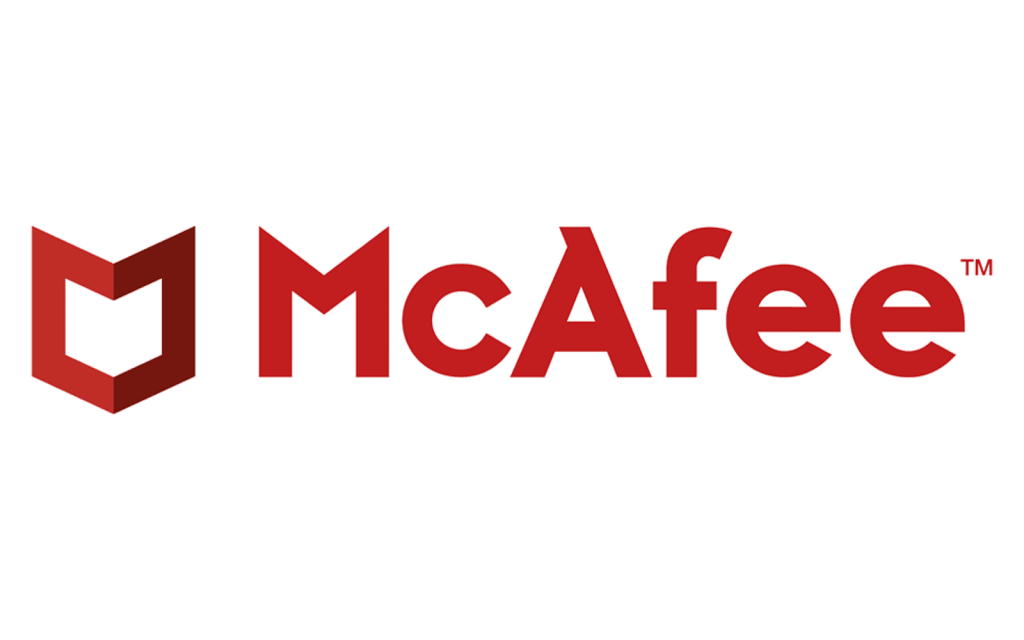
McAfee has been protecting PCs since the early days of the internet, and it remains a heavyweight in 2025. The latest McAfee Total Protection (now often branded as part of the “McAfee+” plans) is a full-featured suite aimed at both security and privacy/identity protection.
Out of the box, McAfee provides real-time protection against malware, phishing, and ransomware on all plans. It scores highly in independent lab tests (usually near the top alongside Norton, Bitdefender, etc.), and its antivirus engine will automatically block threats and web dangers as they arise. McAfee also includes a smart two-way firewall to stop network attacks and monitor suspicious traffic.
One of McAfee’s strengths is the array of extra tools it offers. Even the basic plans come with a password manager and a secure file shredder, and if you opt for mid or top tiers, you get a VPN for unlimited browsing and robust identity theft monitoring services. McAfee’s identity features (in the McAfee+ Premium and Advanced plans) can monitor your credit, alert you if your personal info appears on the dark web, and even provide identity theft insurance and recovery assistance.
This blurs the line between classic antivirus and identity protection service – which is great if you want an all-in-one solution. It’s worth noting that Norton offers similar identity monitoring in its LifeLock bundles, but McAfee’s pricing for those features is often more competitive for families.
Speaking of pricing, McAfee’s value proposition for multi-device households is excellent. While the basic McAfee plan (Individual) covers just 1 device, the McAfee+ Family or Premium plans cover unlimited devices – for a subscription cost often around $50–$100/year on promo. That means you can install protection on every PC, phone, and tablet in your house without worrying about hitting a limit. In comparison, most other services cap at 5 or 10 devices unless you pay more per device.
For a large family or someone with a lot of gadgets, this alone can make McAfee the most cost-effective choice.
In day-to-day use, McAfee’s interface has improved substantially over the years. It’s clean and not too heavy on system resources, though a full system scan can be a bit slow. Outside of scan times, the real-time protection runs efficiently in the background. McAfee also has notably wide compatibility, including support for Windows, macOS, Android, and iOS (with certain feature limitations on mobile).
One con to mention: while McAfee’s protection is very good, some independent tests give a slight edge to Norton in malware detection and to Bitdefender in low system impact. But the differences are small – on the order of a few percentage points. Both McAfee and Norton offer affordable packages with features like parental controls, dark web monitoring, and a secure VPN, and both are highly respected. Choosing between them may come down to which extra features you value more and how many devices you need to cover.
Avast Premium Security – Strong Core Protection from a Free Antivirus Giant
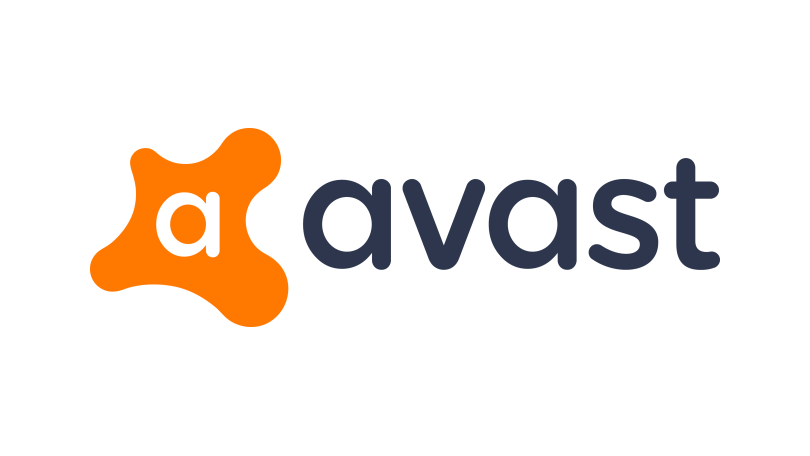
Avast is well-known for its free antivirus, which has protected countless PCs worldwide. Avast Premium Security is the company’s paid offering that builds on the free version’s foundation with extra features and no ads or upsell prompts.
The core antivirus engine in Avast is excellent – Avast consistently scores at or near the top in independent lab tests for malware detection and prevention. With Premium Security, you get real-time malware and ransomware protection that is on par with any competitor. It will block viruses, spyware, and other malware, and it has specialized shields to prevent ransomware from encrypting your files.
Avast’s software also tends to have a very user-friendly interface with an easy status dashboard and one-click smart scan for vulnerabilities.
One of the standout features in Avast Premium is its advanced firewall and network security. Avast’s firewall is quite intelligent and allows for fine-tuned control over app network access, while remaining simple for those who just want it to silently protect in the background. The suite also includes defenses against things like remote desktop hacks and DNS hijacking.
Another handy feature is Webcam Shield, which alerts you and can block unknown programs from accessing your webcam – preventing spying. There’s even a sandbox mode that lets you run suspicious files in an isolated environment to see what they do, without risking your actual system.
However, it’s important to know what Avast Premium Security does not include. Unlike some of the others, Avast’s standard Premium package does not come with a VPN or a password manager. Avast sells those separately (e.g., Avast SecureLine VPN and Avast Passwords, or as part of an Avast Ultimate bundle). It also doesn’t include identity monitoring services.
Essentially, Avast Premium is focused on being an excellent antivirus + firewall suite, enhancing your PC’s security beyond the free antivirus, but it’s not trying to be an all-in-one privacy solution. This can be fine if you only need security and perhaps already use other tools for VPN or password management.
Avast’s pricing is mid-range. The company often offers the first year at a discount (for example, ~$70 for 10 devices for one year), with the regular price being around $100/year for 10 devices. You can choose a single-device subscription as well (around $50 first year). Many users start with Avast’s free antivirus and later upgrade. One benefit of sticking with Avast is that the free tier remains available for other, less critical PCs, and it’s easy to manage within one ecosystem.
Just know that Avast has had some criticism in the past for popping up too many notifications or advertising its other products in the free version – the Premium version removes those annoyances.
Overall, if you’re an Avast fan or simply want a powerful antivirus + firewall for multiple devices, Avast Premium Security is a strong choice. It’s especially good for those who don’t necessarily need extras like a VPN included or who might prefer to choose a dedicated VPN separately.
Bitdefender Total Security – Top-Tier Protection with a Wealth of Features
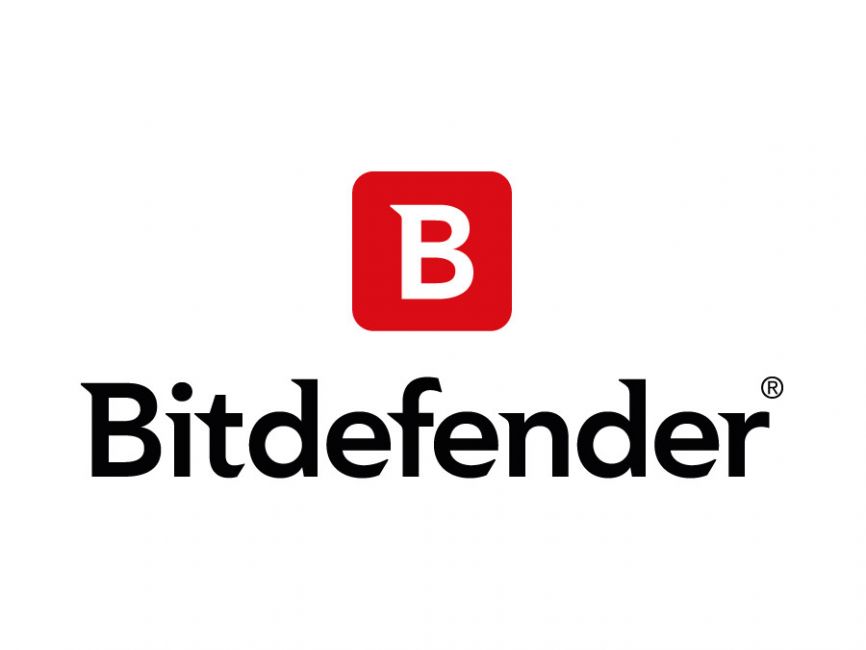
Bitdefender is often mentioned in the same breath as Norton when it comes to the best overall antivirus. Bitdefender Total Security in 2025 continues to uphold that reputation. In independent lab tests, Bitdefender routinely scores at or near 100% detection.
Bitdefender Total Security includes almost every feature you can think of: an antivirus (with real-time and on-demand scanning), anti-phishing filters, a two-way firewall, a spam filter for email, a secure file shredder, a hardened web browser for safe online banking (the “SafePay” browser), a password manager, parental control, microphone and webcam protection, and more. It even has a device anti-theft feature for Windows and Android that can locate or lock a lost device.
Despite this breadth, the interface is neatly organized with a customizable dashboard, so you can pin the tools you use most.
Bitdefender does include a VPN, but with a catch: the standard Total Security license comes with a limited VPN (capped at a certain amount of MB per day). To get unlimited VPN usage, Bitdefender offers a premium VPN subscription at extra cost (or you can buy Bitdefender Premium Security which bundles the unlimited VPN). This approach might be fine if you only occasionally need a VPN, but heavy VPN users might prefer suites that include unlimited VPN by default.
That aside, Bitdefender’s suite is very comprehensive.
Performance-wise, Bitdefender is known for being efficient. It uses cloud-based scanning and optimization to minimize slowdowns. Most users report that Bitdefender runs quietly in the background without hogging memory or CPU, thanks to profiles that adjust protection when you’re gaming, watching movies, etc.
Bitdefender’s multi-device support is great: a single Total Security license can typically cover 5 devices (and you can often find deals for 10-device licenses). It supports all platforms – Windows, Mac, Android, and iOS – though the Mac and mobile versions have slightly fewer features.
One area Bitdefender shines is in ransomware protection. It has a dedicated module that actively protects certain folders from unauthorized changes and will back up files the moment it detects any encryption activity, adding a strong failsafe. Bitdefender’s behavior monitoring (called Advanced Threat Defense) has also been praised for catching brand-new threats that haven’t been formally identified yet.
Considering everything included, Bitdefender Total Security offers tremendous value. It’s often discounted – you might pay around $40 for the first year for 5 devices, which is a bargain for what you get. If you want the confidence of maximum protection and love the idea of a suite loaded with features (and don’t mind managing them), Bitdefender is an ideal choice. It truly is one of those “set and forget” solutions that diligently guards you while offering tools for just about any security task you might need.
Other Noteworthy Antivirus Options: Kaspersky and ESET
Aside from the big names above, a couple of other antivirus products deserve mention due to their strong security pedigree:
Kaspersky – This antivirus has long been regarded as one of the technically best security products. In terms of protection, Kaspersky consistently scores at or near perfect in independent tests. It offers an excellent malware engine, intelligent behavior detection, and a robust firewall and network protection layer. The user interface is clean and easy to use. Its newer product lines (Kaspersky Plus or Premium, replacing the older Total Security) include features like Secure Money (a protected browser for online banking), privacy tools like an on-screen keyboard, a password manager, and a VPN (with unlimited usage in the Premium tier).

Many experts say Kaspersky’s protection is on par with Bitdefender and Norton. The only hesitation some users have is due to its geopolitical background. As a Russian-based company, Kaspersky has faced scrutiny in some regions. However, there is no evidence of wrongdoing by the software itself, and for regular consumers, it remains a top-tier antivirus with a strong reputation. If this context doesn’t concern you, Kaspersky is a powerful, full-featured option with competitive pricing and a low system impact.
ESET – ESET NOD32 Antivirus and ESET Internet Security may not be household names, but they are well-known in the tech community for their high-quality security. ESET is praised for being lightweight, fast, and highly effective at threat detection with minimal false positives. It’s especially popular among power users and businesses that want strong protection without unnecessary extras.
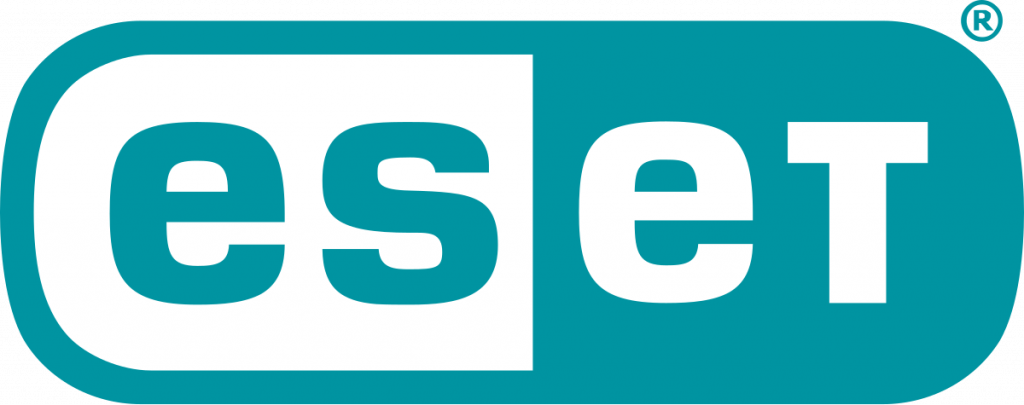
The ESET Internet Security suite includes antivirus, antispyware, firewall, anti-phishing, and useful additions like an email spam filter and network monitoring tools. Premium editions add features like a secure browser for online banking and a password manager. However, ESET’s approach is minimalistic – it doesn’t include a VPN, and the interface is utilitarian but easy to navigate. This makes it ideal for users who want strong, quiet protection without added bloat. Gamers often favor ESET due to its Game Mode, which reduces interruptions and system impact.
ESET also supports a wide range of platforms, including Linux desktops, in addition to Windows, macOS, Android, and iOS. Pricing is typically around $60/year for one device, with multi-device plans available. There’s no free version, but a 30-day trial is offered.
Summary: ESET flies under the radar but delivers elite protection. It’s a top choice for users who want robust security with a light footprint.
Expert and User Feedback: Making the Right Choice
All the antivirus products discussed have strong points, and the “best” choice depends on your specific needs. Consider how many devices you need to cover, whether you want extra tools like a VPN or identity monitoring, and your budget.
Independent experts generally agree that it’s best to stick with well-known security brands that are regularly tested and updated. The top programs — Norton, Bitdefender, Kaspersky, Avast, McAfee, ESET, and others — all provide a high level of protection. The key differences usually lie in features, interface, and customer support rather than in core security performance.
Ease of use and support also matter. Users often praise Norton and Bitdefender for clean interfaces and 24/7 support. TotalAV and Kaspersky are appreciated for being straightforward, while McAfee’s redesigned dashboard has improved usability. Avast’s modern interface and strong free version make it appealing for budget-conscious users.
One smart approach is to take advantage of free trials. Most of these companies offer trial periods, letting you test how the software feels and how it performs on your system. Also consider cross-platform consistency — Norton and Bitdefender, for example, let you manage all your devices through a web portal, making it easier to keep the whole household protected.
Watch out for renewal pricing. Most antivirus products offer a low first-year price and then jump significantly afterward. This is common across the industry. The good news is you can usually find deals each year or ask for a retention discount. Mark your renewal date in your calendar so you can reassess before you’re charged at the higher rate.
Finally, many users say that simply having a reputable antivirus installed gives them peace of mind. Knowing you have real-time protection running quietly in the background, keeping your devices and data safe, is a huge benefit — especially with the constant news of cyberattacks. While no software can protect against every threat if used carelessly, a good antivirus reduces the risk dramatically.
Conclusion: Take Your Digital Security Seriously – Protect Yourself Now
The bottom line is clear: antivirus protection in 2025 is not optional — it’s essential. The threats out there — malware, ransomware, identity theft, and financial fraud — target everyday users just as much as businesses or governments.
Going unprotected is a gamble you don’t need to take.
Fortunately, there are plenty of excellent options available. Whether you choose Norton, Bitdefender, McAfee, TotalAV, Kaspersky, ESET, or another reputable solution, the key is to use something — and keep it updated. Most modern antivirus suites are easy to install, manage, and run quietly in the background.
Think of it as a digital seatbelt or home alarm system — a layer of protection that could make the difference between a near miss and a disaster.
Protect your digital life today. Don’t wait for a cyberattack to realize what you could’ve prevented.

